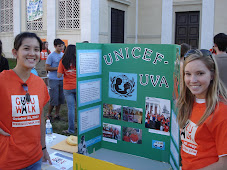| By Matt Prodger BBC News, Nairobi |
Van is 13-years-old and comes from the town of Eldoret - one of the flashpoints of Kenya's recent ethnic violence.
As he talks about the events that befell his family a fortnight ago, his voice drops to a whisper.
"My mother was attacked by men with machetes. I didn't see it - when I arrived, there was only blood on the floor."
I went to the neighbour's house - his leg was broken. I was so very scared. He told me to run for my life."
It is a story that could have been told by any one of thousands of Kenya's displaced children.
More than 60 of them are here in the SOS Children's Home - an orphanage on the outskirts of Nairobi.
For the lucky ones, there is a chance their parents may be missing, but still alive.
The rest of them already know that the events of recent weeks have left them orphans.
Nicholas Makutsa from the Red Cross is one of those tasked with tracing missing parents and children.
"They've talked about seeing their parents being killed - they've seen people being shot, houses being burnt, even people being burnt alive. It's been a traumatising experience for them."
Reunited
And even here, violence is not far away. As we speak, there comes a sound from beyond the gates that causes the children to stiffen with fear - gunshots from a neighbouring slum.
It may be police, or a shoot-out between gangs. But after what these children have witnessed in recent weeks, it is enough to send them scurrying for cover.
Since they arrived here only a handful of children have been reunited with their parents. Today, as they shelter in a classroom from the shooting outside, another one is about to get good news.
Mary is nine-years-old, with a beautiful but troubled face. She stands apart from the other children and says barely a word.
While we are here, the Red Cross gets word that her mother is in fact alive, and on her way to the orphanage
We meet Rosalind at the gate. She tells us of the day that gangs of youths from another tribe set fire to homes in her neighbourhood.
Mary became separated from Rosalind in the panic. For the past fortnight each has thought the other to be dead.
There are no words between mother and daughter when they are reunited - only silent tears. Rosalind takes her daughter's hand, walks out of the gate and back into a Kenya that has become a fearful place.
They have no home, no money and only a promise of future peace from their feuding politicians.- http://news.bbc.co.uk/2/hi/africa/7224401.stm

No comments:
Post a Comment